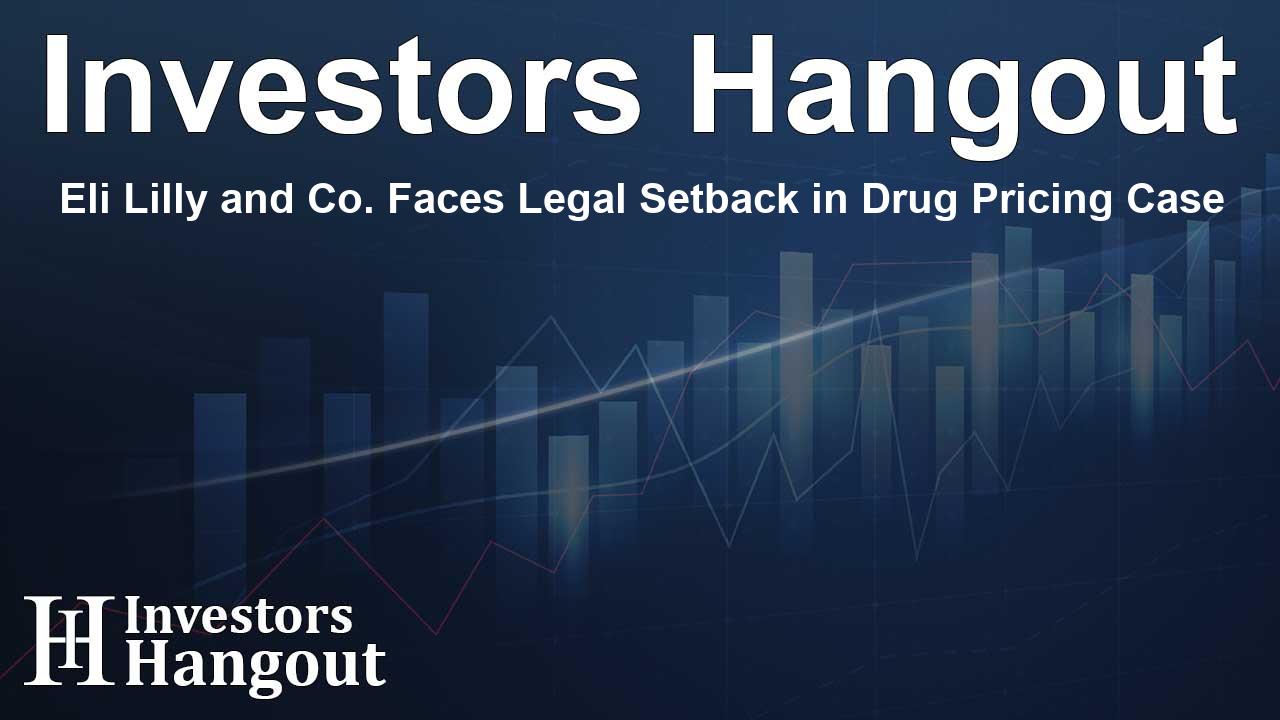Eli Lilly and Co. Faces Legal Setback in Drug Pricing Case

Eli Lilly and Co. Legal Ruling on Drug Pricing Fraud
A recent ruling from a federal appeals court has confirmed a significant judgment against Eli Lilly and Co. in a whistleblower case involving Medicaid drug pricing. The appeals court upheld a judgment of $183.7 million, marking a pivotal moment for the pharmaceutical company as it faces serious allegations of misleading pricing practices.
The Heart of the Case Against Eli Lilly
The appeal, filed by Eli Lilly, aimed to overturn the findings of a whistleblower lawsuit that accused the company of defrauding Medicaid. The 7th U.S. Circuit Court of Appeals stated that the jury reached a reasonable conclusion that Eli Lilly concealed price increases for certain drugs and subsequently failed to adjust Medicaid rebates accordingly.
Evidence of Misconduct
Jurors found that Eli Lilly not only misreported drug prices but also neglected to disclose crucial information to the government. The lengthy trial highlighted substantial evidence suggesting that the company was aware of the legal implications of its actions yet chose to obscure them instead of adhering to appropriate disclosure protocols.
Details of the Whistleblower Lawsuit
This case originated from allegations made by Ronald Streck, a lawyer and pharmacist, who accused Eli Lilly of violating the federal False Claims Act. The crux of Streck's argument revolved around Eli Lilly's practice of retroactively raising drug prices on products sold to wholesalers but not yet resold to pharmacies between 2005 and 2017.
The Impact of Pricing Strategies
Streck contended that Eli Lilly should have reported both the initial and adjusted prices to the government, potentially leading to increased Medicaid rebates. Eli Lilly countered this claim, stating that service fees paid to wholesalers counterbalanced the retroactive charges. Despite their assertions, the court disagreed and emphasized that it was unreasonable for Eli Lilly to report only the original prices.
Financial Implications of the Ruling
According to the court's findings, Eli Lilly's actions resulted in the government losing over $60 million while the company amassed more than $600 million in revenue from the illicit price increases during the specified period. This ruling serves as a critical reminder of the accountability that pharmaceutical companies must adhere to regarding pricing disclosures.
Eli Lilly's Response to the Court Ruling
Following the unfavorable judgment, Eli Lilly expressed its disagreement with the ruling and announced intentions to pursue further appeal. The company argues that the ruling conflicts with a previous 2018 decision involving other pharmaceutical companies, asserting its commitment to maintaining high standards of corporate conduct.
Current Stock Performance of Eli Lilly
As this legal battle unfolds, the stock performance of Eli Lilly reflects the turbulence it faces. As of the latest reports, LLY shares are down by 0.18%, priced at $754.95. Investors keenly observe the company's next steps regarding this legal ruling and its implications for future operations.
Frequently Asked Questions
What is the main issue in the Eli Lilly court case?
The case revolves around allegations that Eli Lilly misreported drug prices to defraud Medicaid, leading to a significant financial judgment against the company.
How much was Eli Lilly ordered to pay?
The appeals court upheld a judgment of $183.7 million against Eli Lilly in connection with the fraud allegations.
Who is the whistleblower in this case?
The whistleblower is Ronald Streck, who accused Eli Lilly of violating the federal False Claims Act.
What could be the future implications for Eli Lilly?
The ruling may also affect Eli Lilly's financial performance and investor confidence, as the company navigates its appeal and potential further legal ramifications.
How is Eli Lilly responding to the court's decision?
Eli Lilly has expressed disagreement with the ruling and plans to appeal, asserting that they maintain compliance with high corporate conduct standards.
About The Author
Contact Ryan Hughes privately here. Or send an email with ATTN: Ryan Hughes as the subject to contact@investorshangout.com.
About Investors Hangout
Investors Hangout is a leading online stock forum for financial discussion and learning, offering a wide range of free tools and resources. It draws in traders of all levels, who exchange market knowledge, investigate trading tactics, and keep an eye on industry developments in real time. Featuring financial articles, stock message boards, quotes, charts, company profiles, and live news updates. Through cooperative learning and a wealth of informational resources, it helps users from novices creating their first portfolios to experts honing their techniques. Join Investors Hangout today: https://investorshangout.com/
The content of this article is based on factual, publicly available information and does not represent legal, financial, or investment advice. Investors Hangout does not offer financial advice, and the author is not a licensed financial advisor. Consult a qualified advisor before making any financial or investment decisions based on this article. This article should not be considered advice to purchase, sell, or hold any securities or other investments. If any of the material provided here is inaccurate, please contact us for corrections.
